| Source (Yiddish) | Translation (English) |
|---|---|
אײן געװיסע רפואה פאר עין הרע מחכמות רב הגמרא דער אנשפרוכ זאגט׃ |
A certain cure of the Evil Eye, from the great wisdoms of the Talmud [or: from the wisdoms of a Talmudic Rabbi]; the incantation states [the following instructions]: |
מוס זיך דיא הענד װאשען אונד אוס לעגען דיא האנד אויף דען קאפף פון דען קראנקען עס זייא אײן קלײן קינד אדער אײן אלטער מאן אדער װײב אויך קאן מאן פאן דען קראנקען נעמען אײן הויב אדער איין טוך, אונד זאלל עס ניט װײט האלטען פון זײן קאפף אונד זאלל הערנאך דיא הויב אדער דאס טוך דעם קראנקען אונטער דעם קאפף לעגען. |
[The healer] must wash his hands and place his hand on the head of the invalid, whether it be a small child or an old man or wife [i.e. woman]; one can also take a cap or kerchief from the invalid and hold it not far from his head, and thereafter place the cap or kerchief under his head. [The healer says:] |
מיט דיא הילף פאן גאטט דען אללמעכטיגען דער דא הײלט אללע קראנקען, דער זאלל אבטהון פאן דיר אללע װעהטאג אונד בעזע בעגעגניס װען דיר איז אנגעקאממען עס זײא פאן אײן בעזין אנבליק עם זײא פאן אײן מאן אדער פון אײן פרויא עס זײא פון אלט אדער יונג זאלל דיר ניט טאדען דײן לײב אונד לעבען נאך ניט אן דײן לונג אדער הערץ אליהו הנביא האט בעגעגנעט דען מלאך אַשְׁטְרִיבּוּדא שפראך אליה׳ הנביא צו איהם: װא געהסט דוא הין? דא זאגט ער איך װילל געהען דען (פלוני בר פלוני בת פלוני) אונד װילל זײנע גלידער אונד פלײש אונד װילל טרינקען זײן בלוטה דא זאגט אלי׳ הנביא צו איהם: ”זא װאהל אלס דוא קײן רשות האסט אויסצוטרינקען אללע װאססער אוים דען מעהר זא זאללסט דוא ניט רשות האבען צו שעדיגען איהם, זײן לײב, אויך ניט אן אײנען פון זײנע גלידער אויף קײנערלײא ארט פון דער גאנצע װעלט.“ |
With the help of God the Almighty, He Who heals all who are ill, may He relieve you of all pain and negative experiences that befell you from the Predatory Gaze – whether you are a man or woman, old or young – may your body and soul not be harmed yet, neither your lungs or heart. Eliyahu haNavi encountered the Angel Astribuda;[1] Does this name for the angel of death derive from “Star Buddha”? –ANV said Eliyahu to him: “Where are you going?” To which he replied: “I want to go to (so-and-so son of so-and-so, daughter of so-and-so) and [eat] his limbs and flesh and drink his blood” — to which Eliyahu says to him: “Very well, but you have no permission to drink all the water, and you no longer have permission to harm him, nor his body, nor any one of his limbs – [even] in the smallest region of the entire world.”[2] Cf. the apotropaic ward against Lilith and her minions. |
האט איהם אײנער געגעבען אײן בעז אויג, זאלל עס איהם ניט שאדען בײא טאג נאך בײא נאכט זא אלס מאן דיא קינדער פון יוסף הצדיק האט מאן קײן בעז אויג קעננען געבען זא זאלל עס דיר אויך ניט שאדען אונד עהעמאן נײן קען צעלען זאלל דיך הש״ית הײלען, אונד צו דיזער שטונד זאללסט דוא זײן געזונד דאס דיא װאהר אין גאטטס נאמען אמן סלה! |
If someone directed against him a Predatory Gaze, may it not harm him in the daytime nor by nighttime, for we are all the children of Yosef the Righteous,[3] To the descendants of Joseph the evil eye can do no manner of harm (Berakhot 20a, Baba Metzia 84a. Cf. Sotah 36b) so we cannot direct the Predatory Gaze — — so may it not harm you either; and by the count of nine may the Blessed One heal you, and may you recover this very hour; this is the truth, in God’s name, Amen Selah! |
אונד זאלל דען קראנקען רײנערן מיט נײן ערלײא פארבין פון װאללינע קלײדער אונד זאל דרײמאל אבלעשען אין פריש װאסער גליהענדע קאהלען אונד צוריקצעלען פאן נײן ביס 1 אונד אבװאשען דאס פנים אונד דיא בײדען דפק דאס הערץ אונד דרײמאל טרינקען פון דען אבגעלאשען װאססער, דיא קאהלען אויף דיא פיער עקען פון ציממער צו װארפען דאס איבריגע װאסער אויף דיא אויסװענדיגע טהיר אנגעל שיטטען, װירד הש״ית אײנע רפואה שלימה זיכער שיקען. |
And then [the healer] should cleanse the invalid with nine different-colored woolen garments [i.e. cloths], and extinguish glowing coals in fresh water three times, and count backwards from nine to one, and wash the [invalid’s] face and both heart-pulse [points], and drink three times from the extinguished water, then throw the coals to the four corners of the room, and pour all the remaining water on [or: out of] the outer door. Then the Blessed One shall certainly deliver a complete recovery. |
This tkhine offers a formula for providing relief to a very ill person, and as such, should only be used as a supplement to recommendations provided by an expert physician or nurse. The source of this invocation is the Tkhine of a Highly Respected Woman (Budapest, 1896) and I have faithfully transcribed it as it appears in The Merit of Our Mothers בזכות אמהות A Bilingual Anthology of Jewish Women’s Prayers, compiled by Rabbi Tracy Guren Klirs, Cincinnati: Hebrew Union College Press, 1992. Translation by Baruch Jean Thaler with edits by Aharon Varady.
The 1906 Jewish Encyclopedia notes the following in its entry “Evil Eye“:
In Slavic lands old women throw live coals into water, with which they sprinkle the four corners of the room, reciting the while certain formulas as a safeguard against the evil eye (Rubin, “Geschichte des Aberglaubens,” etc., p. 164; Grunwald, “Mitteilungen,” etc., v. 41, No. 88). People light the Habdalah candle and hold it before the child’s open mouth, extinguishing it so as to make the smoke go into the mouth (Grunwald, l.c. p. 40, note).[…] “A piece of bread and salt or of the maẓẓah from Passover is put into the pockets of particularly beautiful children. A piece from the garment of the person who is suspected of having exercised the charm . . . is placed on glowing coals and the smoke blown into the child’s face” (Grunwald, ib.). Adults wear rings or beads of amber on a string around the neck as a protection against the evil eye (Rubin, l.c. p. 179; Grunwald, l.c. v. 60, No. 198, note). The bridegroom, whose conjugal happiness is envied by some one, is especially susceptible to the influence of the evil eye. He may protect himself by walking backward (Grunwald, l.c. i. 87, v. 33, note 42). In olden times children were not taken to the wedding-feast for fear of the evil eye in the crowd (Lev. R. xxvi. 7; Tan., Emor, 4; comp. also Grunwald, l.c. i. 36, 99).
- M. Grunwald, Mitteilungen der Gesellschaft für Jüdische Volkskunde, 1901, part vii., s.v. Böser Blick;
- S. Rubin, Gesch. des Aberglaubens bei Allen Völkern mit Besonderem Hinblick auf das Jüdische Volk, Vienna, 1887
Source
Notes
| 1 | Does this name for the angel of death derive from “Star Buddha”? –ANV |
|---|---|
| 2 | Cf. the apotropaic ward against Lilith and her minions. |
| 3 | To the descendants of Joseph the evil eye can do no manner of harm (Berakhot 20a, Baba Metzia 84a. Cf. Sotah 36b) |

“אײן אנשפראכע געגען עין הרע | An Incantation against the Ayin haRa (1896)” is shared through the Open Siddur Project with a Creative Commons Attribution-ShareAlike 4.0 International copyleft license.
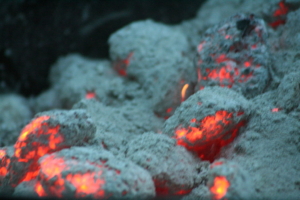
![[Ḳameʻ] : [ʻavur Mirḳada d.m Ṿiadah bat Donah] (Columbia University Hebrew Manuscripts Collection, MS General 194) - cropped](https://opensiddur.org/wp-content/uploads/2020/08/ldpd_11683790_000_00000001-featured-image.jpg)
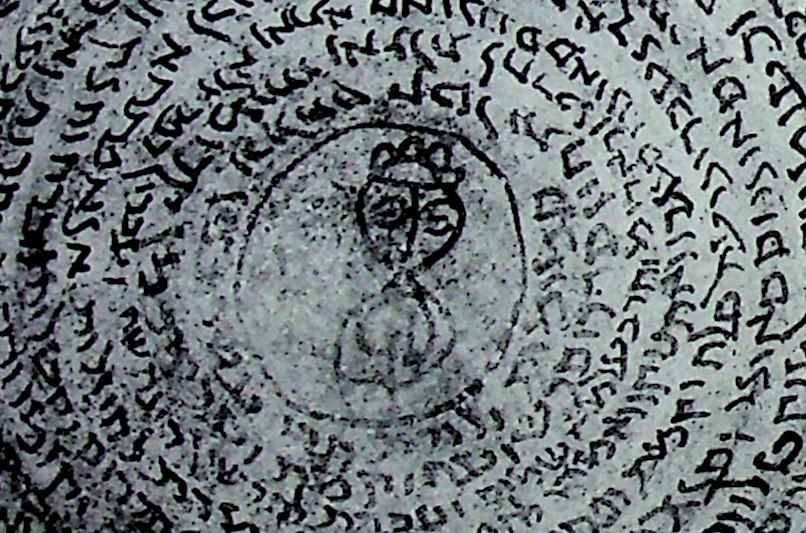

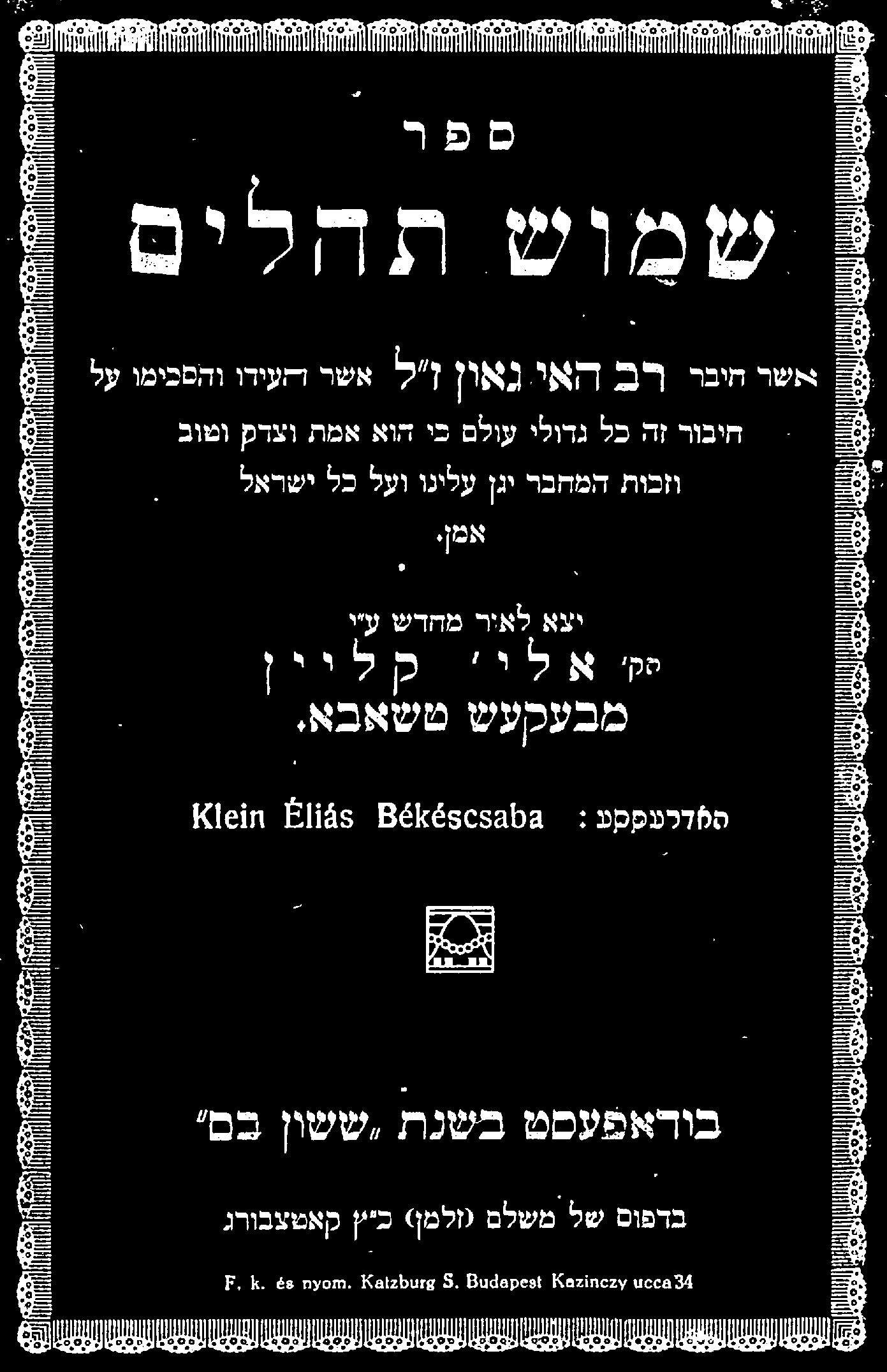
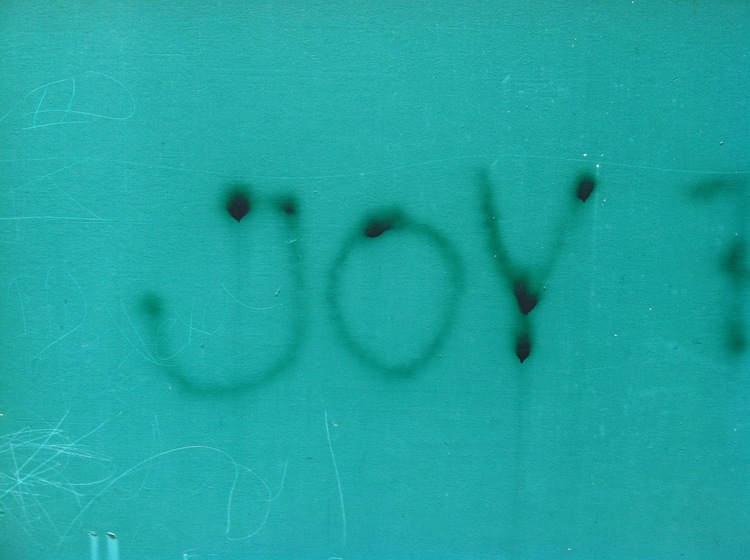
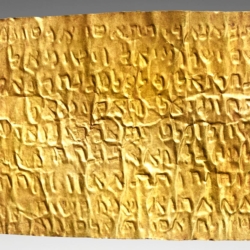



Leave a Reply